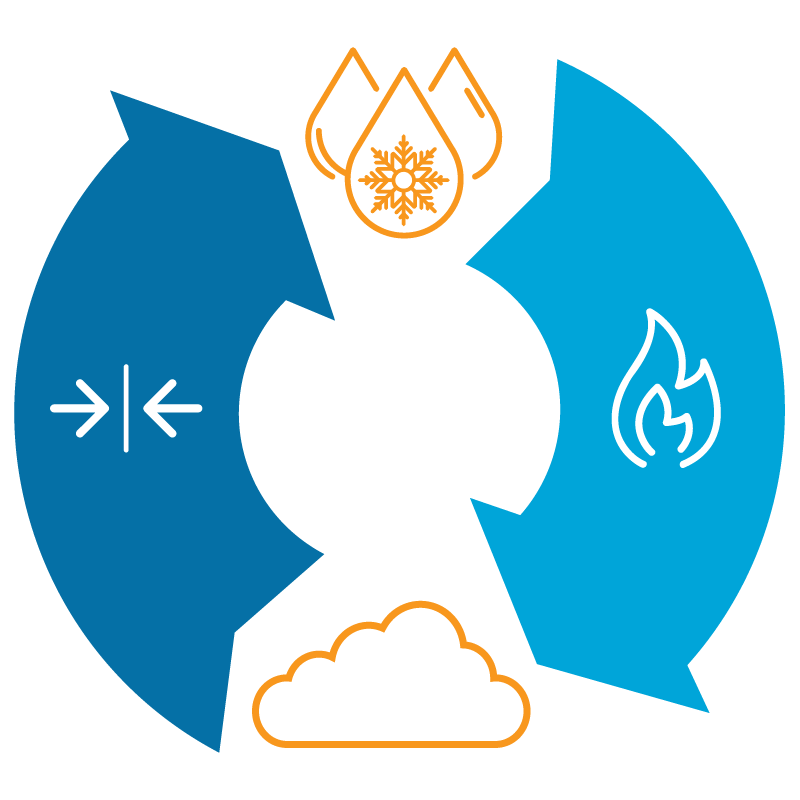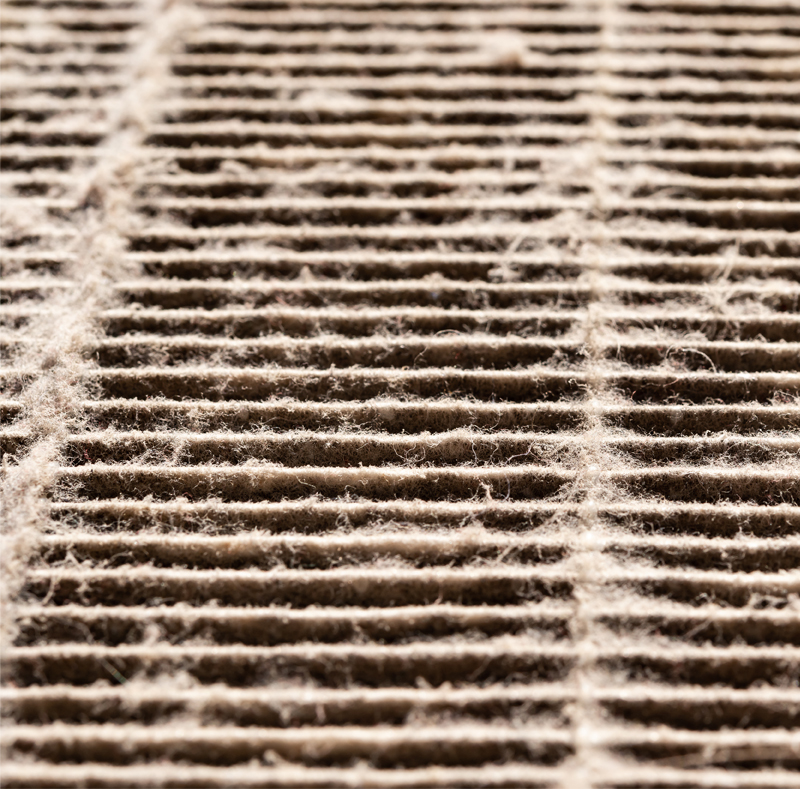You may think it’s bizarre, but even in the summertime your air conditioner can freeze. Even though the icicles look nice and cold, air conditioning units that freeze are not cooling your home properly. If the problem keeps occurring, it can cause long-term damage to the unit and prevent you from enjoying the summertime in comfort.
What causes an air conditioner system to freeze up? There could be a number of different reasons. Most often, the problem involves refrigerant or airflow.

Refrigerant is a chemical that makes the air conditioner work by collecting heat from the home and converting it to liquid. When warm air flows over the coils, the refrigerant inside the coils absorbs this heat, turning it from a liquid into a gas. A compressor has to convert the gas back into a liquid in order to keep cooling the home efficiently. When this happens, a fan forces the heat from this compressor out of the unit through condenser coils. The cooling turns the refrigerant gas back into a liquid, starting the process all over again.
Think of the refrigeration process as an ongoing cycle:
- Start with liquid refrigerant
- The liquid refrigerant converts to a gas through heat absorption.
- Compression removes the heat and converts the refrigerant back into a liquid.
- The cooling starts with liquid refrigerant again.

If there is a problem with the refrigerant, it can stop the whole process and prevent your unit from operating correctly, even causing it to freeze up. Refrigerant can leak over time as regular wear and tear can eventually break down a unit. When a unit is leaking refrigerant, it may not have enough to keep the coils at the right temperature. If the coils get too cold, they can freeze. You may even see icicles developing on a hot day! It won’t be possible to run your air conditioner correctly while these coils are frozen solid.
Airflow Blockage
Another issue that can freeze an air conditioner is poor airflow. Airflow is critical because it transfers the warm air that converts the refrigerant from gas to liquid. Without proper airflow, the coils will get too cold and accumulate ice. Humidity in the air can add to the ice buildup.
If your frozen air conditioner isn’t leaking refrigerant, then the problem may have to do with a blocked airflow. If filters aren’t cleaned or replaced every one to three months, dust and dirt can build up. This accumulation can force the AC unit to use more energy in order to cool your home, and in extreme cases can block the airflow entirely. When that happens, the coils will freeze because there’s no air to keep the temperature in check.

Extreme Temperatures
Another way that an air conditioner can freeze is much simpler. Sometimes, even during the spring and summer, the temperature will drop drastically at night. if it’s too cold the unit could freeze. If it’s going to be a cold night, turn the air conditioner off so it doesn’t freeze overnight.
How to Fix a Frozen Air Conditioner
First and foremost, regular maintenance can prevent many of these issues from happening in the first place. The easiest repairs are usually the preventative ones. Annual tune-ups can help you catch any problems before they get worse, saving you from more involved and expensive repairs.
If you have a frozen AC, the unit needs to be de-iced. That means turning it off to thaw overnight. The air conditioner has to be full thawed out in order for a service technician to be able to inspect it. When it is no longer frozen, you can call an HVAC technician to come investigate the issue and repair it.

If your air conditioning system is frozen, or if you’re interested in upgrading to a more efficient model, contact SMO Energy today. Our NATE-Certified technicians and expert energy consultants can assist with all of your air conditioning needs, and help you and your family stay cool all summer.
